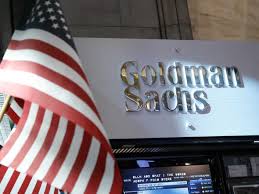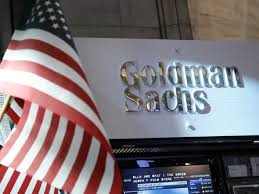
Goldman Sachs said in a note on Monday that the drive toward tighter trade and immigration policies that are being purportedly undertaken by President Donald Trump are set to dampen global economic growth.
"Our simulations suggest that Mr. Trump's policies could boost growth slightly in 2017 and 2018, but are likely to weigh on growth thereafter if trade and immigration restrictions are enacted," Goldman said.
"Moreover, the risks around our base case appear asymmetric: a larger fiscal package could boost growth moderately more in the near term, but a more adverse policy mix would likely lead to a significant slowdown, higher inflation, and tighter policy in subsequent years."
In recent years, fiscal policies would have been positive for economic growth and Goldman pointed out to headwinds for such positive fiscal policies.
"The timeline for passage of a fiscal bill has moved into late 2017 or maybe even early 2018, and the hyper-polarized political climate has reduced whatever slim chance existed for bipartisan cooperation, e.g. with regard to infrastructure spending," it said.
An executive order temporarily restricting travel for people from seven majority-Muslim countries was signed by Trump last month. The order that affected a broad spectrum of refugees, travelers, legal residents of the U.S. and some U.S. citizens has been, since its declaration, halted by the courts. Additionally, the H-1B visas, which allow companies in the U.S. to bring in foreign workers into the country, have been threatened to be curbed by the Trump administration.
Goldman pointed to the potential chilling effect on labor growth while noting that it was difficult to estimate the potential implication of the policies.
"Net immigration currently contributes an estimated 0.4 percentage points to U.S. population growth and accounts for most of the projected growth rate of the potential labor force of around 0.5 percent," it said. "We think that it is plausible that tighter immigration restrictions will reduce this inflow substantially over the next few years."
On trade, Goldman noted that measures, such as across-the-board tariffs, weren't likely in the near term and predicting about the base case was that severe protectionist measures said that those would likely be met with symmetric retaliatory tariffs.
"The most likely policies in the near term involve the announcement of a formal process to determine whether China is 'manipulating' its currency, and the initiation of trade remedy cases on a number of products," it said.
The potential hit to global economic growth from Trump's protectionist policies has also been pointed out by other analysts.
The rise in protectionism was termed as a "a material and rising risk," with the U.S. accounting for much of that, by analysts at Citi in a note last week.
"Increases in protectionism can have major adverse effects on growth," the Citi note said, citing OECD estimates that a permanent 10 percent rise in trade costs could shave global gross domestic product (GDP) by around 1 percent in the medium term.
As rising uncertainty dampens business confidence, reducing capital expenditure and retaliation measures in other countries would reinforce the adverse effects in the global economy, Citi noted.
(Source:www.cnbc.com)
"Our simulations suggest that Mr. Trump's policies could boost growth slightly in 2017 and 2018, but are likely to weigh on growth thereafter if trade and immigration restrictions are enacted," Goldman said.
"Moreover, the risks around our base case appear asymmetric: a larger fiscal package could boost growth moderately more in the near term, but a more adverse policy mix would likely lead to a significant slowdown, higher inflation, and tighter policy in subsequent years."
In recent years, fiscal policies would have been positive for economic growth and Goldman pointed out to headwinds for such positive fiscal policies.
"The timeline for passage of a fiscal bill has moved into late 2017 or maybe even early 2018, and the hyper-polarized political climate has reduced whatever slim chance existed for bipartisan cooperation, e.g. with regard to infrastructure spending," it said.
An executive order temporarily restricting travel for people from seven majority-Muslim countries was signed by Trump last month. The order that affected a broad spectrum of refugees, travelers, legal residents of the U.S. and some U.S. citizens has been, since its declaration, halted by the courts. Additionally, the H-1B visas, which allow companies in the U.S. to bring in foreign workers into the country, have been threatened to be curbed by the Trump administration.
Goldman pointed to the potential chilling effect on labor growth while noting that it was difficult to estimate the potential implication of the policies.
"Net immigration currently contributes an estimated 0.4 percentage points to U.S. population growth and accounts for most of the projected growth rate of the potential labor force of around 0.5 percent," it said. "We think that it is plausible that tighter immigration restrictions will reduce this inflow substantially over the next few years."
On trade, Goldman noted that measures, such as across-the-board tariffs, weren't likely in the near term and predicting about the base case was that severe protectionist measures said that those would likely be met with symmetric retaliatory tariffs.
"The most likely policies in the near term involve the announcement of a formal process to determine whether China is 'manipulating' its currency, and the initiation of trade remedy cases on a number of products," it said.
The potential hit to global economic growth from Trump's protectionist policies has also been pointed out by other analysts.
The rise in protectionism was termed as a "a material and rising risk," with the U.S. accounting for much of that, by analysts at Citi in a note last week.
"Increases in protectionism can have major adverse effects on growth," the Citi note said, citing OECD estimates that a permanent 10 percent rise in trade costs could shave global gross domestic product (GDP) by around 1 percent in the medium term.
As rising uncertainty dampens business confidence, reducing capital expenditure and retaliation measures in other countries would reinforce the adverse effects in the global economy, Citi noted.
(Source:www.cnbc.com)





